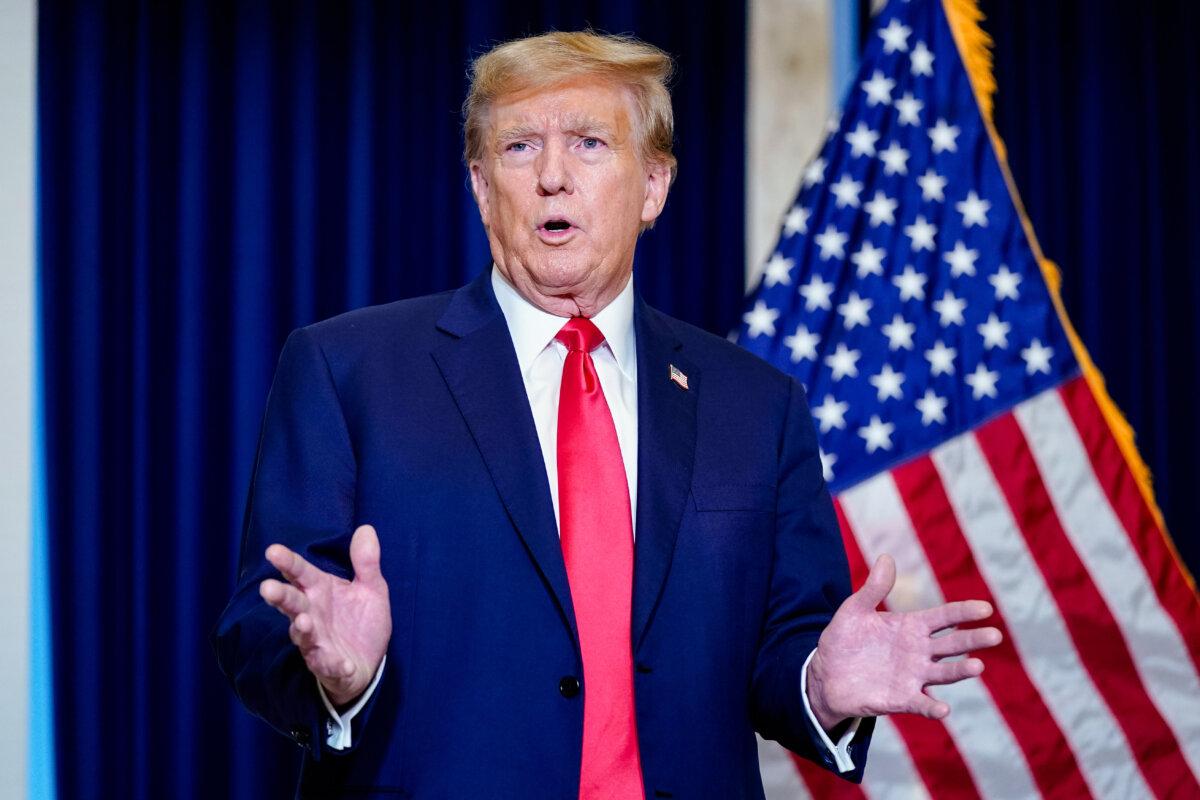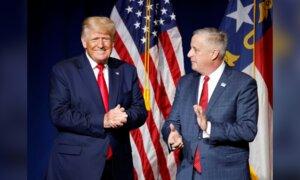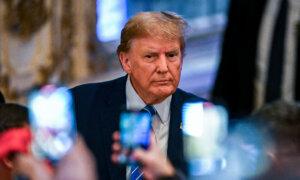A determination on presidential immunity by the Supreme Court could have implications for the lawsuits.
A federal appeals court in the District of Columbia has issued an order allowing three Jan. 6 lawsuits to proceed against former President Donald Trump after a court rejected his assertion of presidential immunity.
A three-judge panel at the U.S. Court of Appeals for the District of Columbia Circuit issued an order on March 8, allowing the three consolidated appeals to be “removed from abeyance” and approving motions for summary affirmance, meaning removing a temporary hold on the cases and allowing them to proceed.
The lawsuits that are now allowed to proceed are Moore v. Trump, Kirkland v. Trump, and Tabron v. Trump.
In all three civil suits, law enforcement officers are seeking damages based on the premise that President Trump incited a mob to storm the Capitol, leading to a violent incident in which they sustained various injuries and suffered harm, including emotional distress.
‘Matters of Public Concern’
The judges noted in their March 8 order that the merits of the three parties’ positions “are so clear as to warrant summary action,” and that the cases can proceed based on a Dec. 1 appeals court decision in Blassingame v. Trump that President Trump is not immune to lawsuits over the Jan. 6, 2021, breach of the U.S. Capitol.
In Blassingame v. Trump, the former president’s attorneys had argued that he should be granted immunity because his alleged actions around Jan. 6 amounted to official speech on “matters of public concern.”
The judges’ reasoning in that case was that the former president’s actions leading up to and on Jan. 6 were part of his campaign for a second term in the White House and not an official presidential act.
“In arguing that he is entitled to official-act immunity in the cases before us, President Trump does not dispute that he engaged in his alleged actions up to and on January 6 in his capacity as a candidate. But he thinks that does not matter,” U.S. Circuit Judge Sri Srinivasan, appointed under President Barack Obama, wrote in the Dec. 1 ruling.
“Rather, in his view, a president’s speech on matters of public concern is invariably an official function, and he was engaged in that function when he spoke at the January 6 rally and in the leadup to that day. We cannot accept that rationale.”
“On appeal, the only question is whether President Trump has demonstrated his entitlement to official-act immunity,” reads the Dec. 29 order, which was signed by a three-judge panel consisting of Judge Srinivasan and Judges Judith Rogers and Gregory Katsas.
The judges in that case laid out a similar rationale for denying President Trump’s argument that he should be protected from liability because his statements and actions on Jan. 6 amounted to making statements that are of concern to the public.
“That argument fails” because President Trump’s commentary and actions around Jan. 6 bear “no inherent connection to the essential distinction between official and unofficial acts” because they were not part of his official duties to share “matters of public concern,” the judges wrote, concluding he’s ineligible for presidential immunity.
In the Dec. 29 ruling, the judges also cited the Blassingame v. Trump judgment and said the case brought by Mr. Smith and his colleagues is “indistinguishable” in all relevant aspects, so they issued what amounts to an identical determination that President Trump is not immune from civil lawsuits related to Jan. 6.
A request for comment on the Dec. 29 judgment sent to the Trump campaign was not returned before press time.
The former president is entitled to request a rehearing before a full panel of judges on the U.S. Court of Appeals in the immunity case. He could also appeal to the U.S. Supreme Court.
President Trump’s appeal in this case also claims immunity, with the Supreme Court set to hear oral arguments during the week of April 22.
A determination on presidential immunity by the Supreme Court could have implications for the lawsuits that the District of Columbia appeals court just allowed to proceed.
‘Peacefully and Patriotically’
Even though President Trump said in his Jan. 6 speech that protesters should “peacefully and patriotically make your voices heard,” his critics have seized on a portion of his remarks where he said “we fight like hell” and “if you don’t fight like hell, you’re not going to have a country anymore.” Critics claim this was a call for violence.
The former president has, on numerous occasions, denied calling for violent protests while insisting he meant his remarks about fighting like hell metaphorically.

President Trump has rejected the claim that he in any way incited violence on Jan. 6, 2021, pointing to remarks he made that called for demonstrators to protest peacefully. In a bid to dismiss the lawsuit, his attorneys argued that the complaint should be tossed because he, as president, was eligible for immunity.
Original News Source Link – Epoch Times
Running For Office? Conservative Campaign Consulting – Election Day Strategies!


